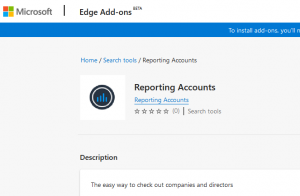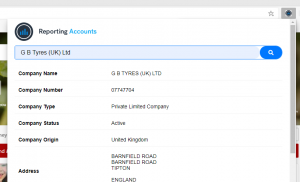
Benefits Of Browser Extensions
Browser extensions are a great way to personalize your browsing experience, and although I've only recently started using them more (and wish I'd done it earlier), this blog post is for those of you who want to do this, Google it. Today, we'll take a look at some of the benefits of browser extensions and how they work. It's worth noting that while several browsers have an ecosystem of extension, Chrome extensions have been built around the idea that Chrome is the browser customers use most.
Chrome extensions are available in the Chrome Web Store, while Firefox extensions are available through Mozilla's add-on site. Almost all major browsers support extensions, and you can find extensions for Firefox, Chrome, Opera, Safari, Internet Explorer, Firefox OS, Opera and MS edge. You can also find Chrome extensions in the Chrome Web Store, which makes it handy to search for new and useful extensions.
You can mitigate the security risks of browser extensions by installing extensions only you know and from publishers you trust. You can also take a look at the companies that develop extensions, such as Google and Microsoft extensions, which are generally secure and in some cases well maintained. But be careful and delete all extensions that you use regularly, as well as all those that cause security problems.
If Google removes an extension from the Chrome Web Store because malicious activity occurs, it is marked as malware and disabled. You also need to check your browser extensions and repeat the removal instructions if you are having repeated problems with any of these extensions, as the list below shows. If one of your extensions is not installed, a Chrome browser extension warning will appear when Chrome is launched for a week.
Browser extensions can be incredibly practical and useful, but this does not apply to all browsers and browser extensions, as some extensions may crash or compromise your browser for security reasons. Depending on the access they were originally granted, a compromised extension could give an attacker access to the website you visited, or even the browser itself, depending on who originally granted access.
This is just one example of how malicious browser extensions can compromise your internet security and online privacy. There are a plethora of examples that show how a malicious browser extension can affect the security of those who download it.
Let's discuss what's wrong with browser extensions and how you can minimize the risk that they run amok in your web browser. First of all, I would like to say to what extent browser extensions work to provide protection when you browse online.
In my opinion, the biggest advantage browser extensions have on the web, mobile phone and email is that they are embedded in the websites that customers use the most. There can be no difference between a page generated by a browser extension and one installed by it.
There are a wide variety of browser extensions, depending on what function they perform and what problem they solve. Speaking of which, I'm writing the innovative Google Chrome extensions that will enable you to successfully layer software tools on websites. Chrome also has a thriving extension ecosystem, there are literally thousands of extensions listed in the Chrome store, from stupid to extremely useful. There are probably many things you want to do with it, but they are probably not the ones you are looking for.
This means that most extensions are free in a virtual sense, you can choose which extensions to add, but make sure you stick to what you think will be most useful to you. If you're going to install any number of browser extensions, kick the tires and look around, look at the list of most popular and useful ones in the Chrome Store, and make a decision to stick with those you thought they would be aware of, though that extensions can slow down your browser, only be aware that some of them can slow it down. While it sounds like a great idea to use a web browser extension to deal with it, it does carry some risks. Over time, I can compile a list of extensions that are designed to streamline your work process or just generally improve the way the Internet looks in your browser.
Chrome extensions were already compromised before in 2013, in an effort to improve security, Google UK opted to disable the use of some of the most popular extensions in the Chrome Store, such as Firefox and Safari. Mozilla has since removed other browser extensions to execute malicious behavior on certain third-party websites, collect and transmit user data, manipulate user search behavior, and hide source code to make the true nature of an extension impossible. These attacks serve as a reminder that legitimate browser extensions can periodically fall into the wrong hands, so it makes sense to limit the risk of such attacks by getting rid of extensions that are no longer useful or actively maintained by the developers. Chrome has some new restrictions for developers of extensions that should help mitigate this issue, but some extensions can cause problems, both ethically questionable and malicious.
Here at Reporting Accounts we have our own suite of Browser Plugins.
MS Edge
This is our most recent addition, it allows you to access our database with a single click from the browser navigation,we plan to add many more time saving features as we go along meanwhile you can download it from the Microsoft store here.


Google Chrome
Our Google Chrome plugin has been around for a while now but is always popular.

You can find that on the Google Play Store.
We also have more extensions in the pipeline including an updated firefox version and a new Safari plugin, which we hope our developers will have completed and ready before Xmas. Check back regularly for updates via our blog.
Bio Adrian is the CEO of Reporting Accounts he can be found over at Gitlabs and Github.


